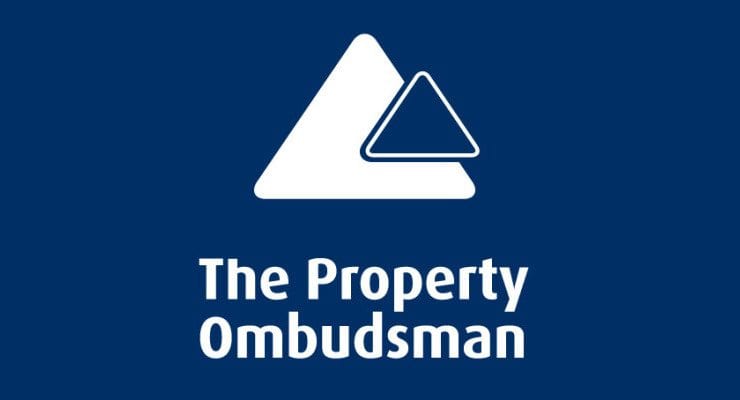TPO expels Essex lettings agent following complex landlord dispute
Ombudsman considers an extraordinary case concerning three properties and issues including tenant referencing, outstanding rent and repair bills and a tenancy renewal agreed without the landlord’s consent
The Property Ombudsman (TPO) scheme has expelled Lettings Solutions Ltd for two years after Lettings Solutions Ltd failed to pay an award following a review of a highly complex landlord complaint concerning three rental properties in Essex.
The Property Ombudsman (TPO) scheme provides a free, fair and impartial dispute resolution service for buyers, sellers, landlords and tenants. This case is being publicised by the Ombudsman so landlords and tenants ensure they always check their agent’s services thoroughly and ensure they keep records of any agreements just in case a dispute should arise.
TPO helps more than 16,000 consumers with their property disputes every year and this case concerns several allegations made by a landlord who let three properties through Lettings Solutions Ltd, who acted as her agent.
TPO is not a regulator but the Ombudsman’s powers mean that a member agent can be held to account for their actions because the scheme’s Codes of Practice go above and beyond the law to protect consumers from unfair practices and help raise industry standards. TPO’s Sales and Lettings Codes are approved by the Consumer Code Approval Scheme (CCAS) and the Codes are crucial when reviewing complaints because they underpin the standards of member agents and the way each case is investigated by the Ombudsman to ensure a consistent and fair approach.
Case summary
The landlord contacted TPO after she was unable to resolve her dispute with Lettings Solutions Ltd. Her complaints covered a wide range of issues, including tenant referencing, agreeing tenancies without explicit approval, missing deposit monies, property repairs, pursuing outstanding rent and a tenancy renewal that was appeared to have been made without her consent.
TPO’s investigation found that the tenants of one of the properties had left owing several months’ rent and the property in need of significant repairs. Court proceedings followed but, although a judgement debt was made by the court against the tenant, it has proved unenforceable because the tenants could not be located.
The investigation also revealed that the tenants were known to Lettings Solutions Ltd but the tenants had not had recent reference checks. The Ombudsman ruled that Lettings Solutions Ltd should have done more and also let the landlord know that the tenants had a rent arrears history and wanted to keep pets so she could make an informed decision about accepting the tenants. The agent alleged the landlord had been informed but the landlord complainant disputed this. Crucially, the agent had failed to get written confirmation that the landlord did wish to proceed and rent the property to the tenants concerned.
The landlord also highlighted issues concerning the deposit for the tenancy. This was only partially paid and what was received was not protected by a recognised Tenancy Deposit Protection Scheme, a legal requirement. The deposit was insufficient against what was owed.
One of the major complicating factors in investigating this case was Letting Solutions Ltd’s poor record keeping and poor financial accounting. This severely hampered the investigation. The landlord made allegations of monies owed to her and Lettings Solutions Ltd made counter-claims. However Lettings Solutions Ltd did not keep a sufficient paper trail or any other supporting documentation. This effectively prevented the Ombudsman from being able to reach a firm conclusion about any accounting irregularities.
Poor record keeping also hindered TPO’s review of the case as Lettings Solutions Ltd had failed to document tenancy agreements correctly or record any correspondence concerning any informal agreements Lettings Solutions Ltd had made or any agreements between the landlord and the tenants.
Katrine Sporle, Property Ombudsman, said:
“This has been a complex case to review. The agent systematically failed to grasp the fundamental legal principle that the landlord should decide who to rent their property to. My investigation found that Lettings Solutions Ltd had failed to follow Code procedures for referencing and documenting tenant applications.”
Award instruction and scheme expulsion
The landlord chose to accept the Ombudsman’s findings and the agent was instructed to pay £1,423.74 which was to reflect the avoidable aggravation, distress and inconvenience caused to the landlord.
Lettings Solutions Limited has now been expelled from TPO for breaching the terms of its membership when it failed to pay the award. The TPO’s independent Disciplinary and Standards Committee also ruled that Lettings Solutions Ltd will not be able to register for sales or lettings redress with TPO for a period of two years.
It is a legal requirement for every sales and lettings agent to be registered with an approved redress scheme. Lettings Solutions Ltd’s expulsion from TPO for failing to pay an award means it will not be able to join another redress scheme until the award is paid.
When an agent is expelled from TPO for failing to pay an award, they are also reported to Trading Standards which can enforce fines of up to £5,000 for every branch found to be trading without redress registration.
Gerry Fitzjohn, Board Chairman said:
“Lettings Solutions Ltd’s practices and lack of clear documentation in many aspects of this case falls well short of reasonable expectations of service standards and our aim to protect consumers from unfair practices and raise standards in the industry.
“Fundamentally, this complaint reveals the complex nature of lettings property and I hope the unfortunate experiences endured by this landlord offer a lesson in the importance of good record keeping so both agents and consumers have written evidence available about what is agreed should a dispute arise.”
It is understood that the Witham-based lettings agent is no longer trading (Company Number: 06756503). TPO has provided the complainant with guidance to seek payment of the award by alternative means, such as the small claims court.
News shared from: Helen Evison Helen@theinhouseway.co.uk









